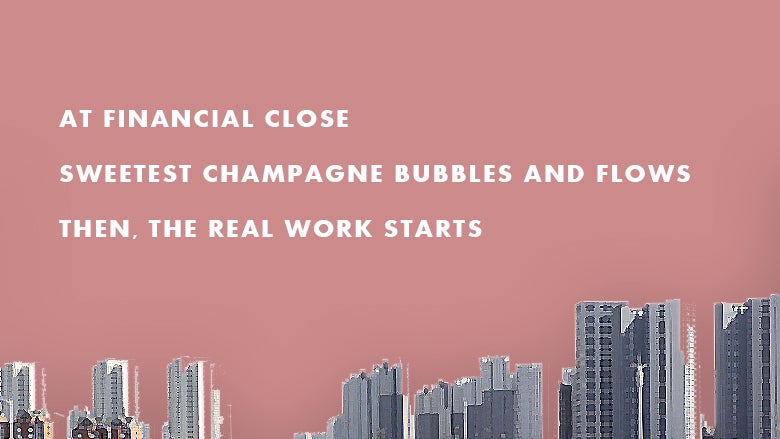
Photo Credit: Eduardo Llanquileo via Flickr Creative Commons
The Public-Private Partnership (PPP) concept is actually not very complex. You take the best of the public sector and the best of the private sector, put them together and – voila! The sum of the parts is greater than the whole, 1+1=3, more efficiency, more investment, with public oversight and support. PPPs are not for dumping a problem on the private sector. The problem still belongs to the government, only with a new partner, the private sector, to help resolve it.
So, if the logic is so simple, why do many countries perform so poorly when implementing PPPs?
PPPs are actually not so different from marriage; both require a long-term relationship and a serious commitment. A marriage is the union of two people, sometimes with different backgrounds, different expectations, and different ways of working together. And the wedding (or in the case of the PPP – the signing of the PPP agreement) is only the beginning. A good PPP, like a good marriage, requires constant effort. And like a good marriage, a good PPP can be a wonderful, powerful union, which makes both parties better.
So, sticking with the image of PPPs as a marriage, there are three things that government needs to do to make the partnership work:
Prepare well: You don’t go looking for a husband or wife in old smelly clothes, your hair a mess. You put on your best clothes, you take care of yourself. In short, we need to prepare these PPP projects well, do feasibility studies with the very best international experts. When investors see this kind of effort, they know the government is serious. We need to be serious before we can hope to attract serious investors.
Choose well: You don’t go to a café or the beach looking to meet your future spouse and just pick the first guy or girl you see. Like marriage, partnership under PPPs requires careful selection. It is not about the fastest, the biggest or the cheapest; it’s about a partnership. Like marriage, it is not just the prettiest or the wealthiest or the smartest or the nicest or the best cook…you want the whole package!
Nor would you want your daughter to get married to the first person who comes knocking on the door. Of course not! Similarly, we should not sign contracts with the first company to propose a project. Make interested investors compete. Just because the investor was the first one to knock on the door does not make them the best partner, nor should it give them any priority in your selection of a partner. Speed is not the criteria; it is quality, commitment, and ability to deliver. Open, transparent competition is the best way to be sure the one you choose is the one who fits the criteria, to keep everyone honest and for government to get the best investor on the best terms.
Be a good partner: The hardest part about marriage is not finding a spouse or marrying the person. The hard part comes after the wedding feast, the gifts, and the celebrations. That is when the real work starts. A good marriage requires a commitment, every day; a decision to be a good spouse. With PPPs it is easy to focus on the procurement process, the negotiations. At financial close, the champagne flows. But the next day, the real work starts. Be ready for it, have a good team set up and prepared to manage project implementation.
Impromptu Haiku break:
After I got married, I made a stunning discovery, life changing, really. Are you ready? Men and women are different. I know, blows your mind, but it’s true! I mean completely different. I didn’t really get that until after I got married, and had to manage conflicts, make concessions, find compromise, with someone who came at problems and conflict from a completely different perspective. PPPs are the same, public and private are completely different. They approach relationships, decision making, and problem solving from different perspectives.
PPPs are not about each partner staying in its little corner, doing its work and blaming the other for problems. PPPs are about working together, learning how to get along and how to bring out the best in your partner. There needs to be commitment and a willingness to work through challenges and conflict. Only then will the partnership bloom.
And one final thought: Like marriage, if you are not committed to doing a PPP, then don’t do it. There is no greater disaster than a PPP without government commitment. A failed PPP can be as painful and costly as a marriage that breaks down.


Join the Conversation